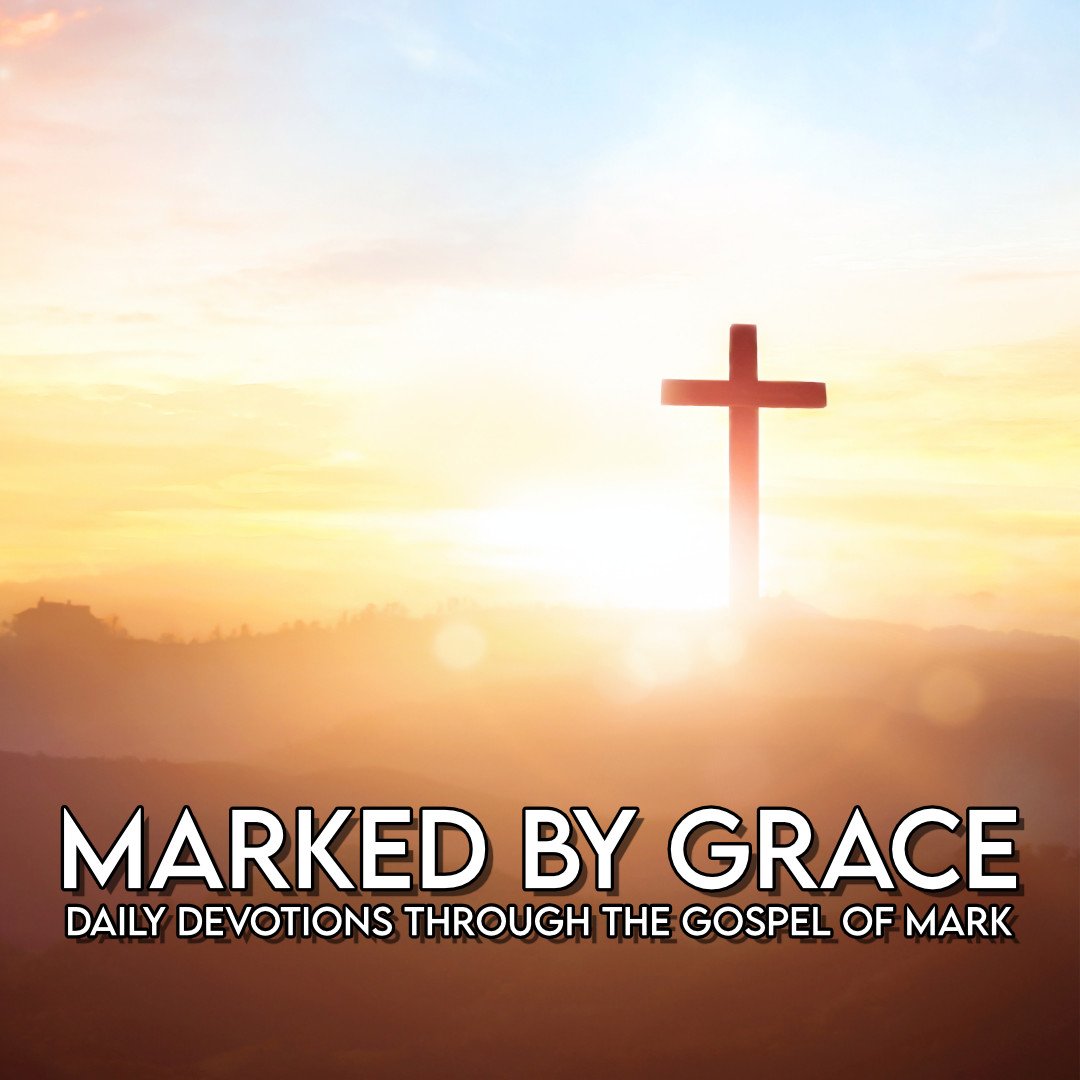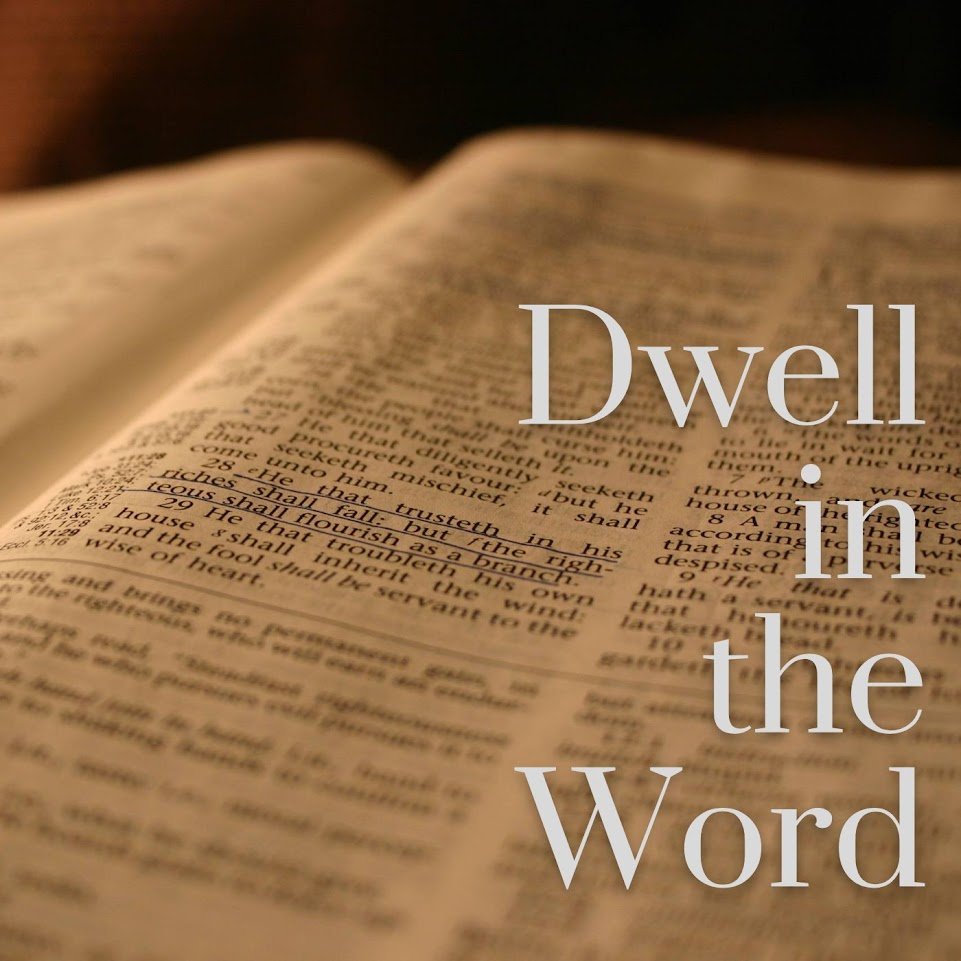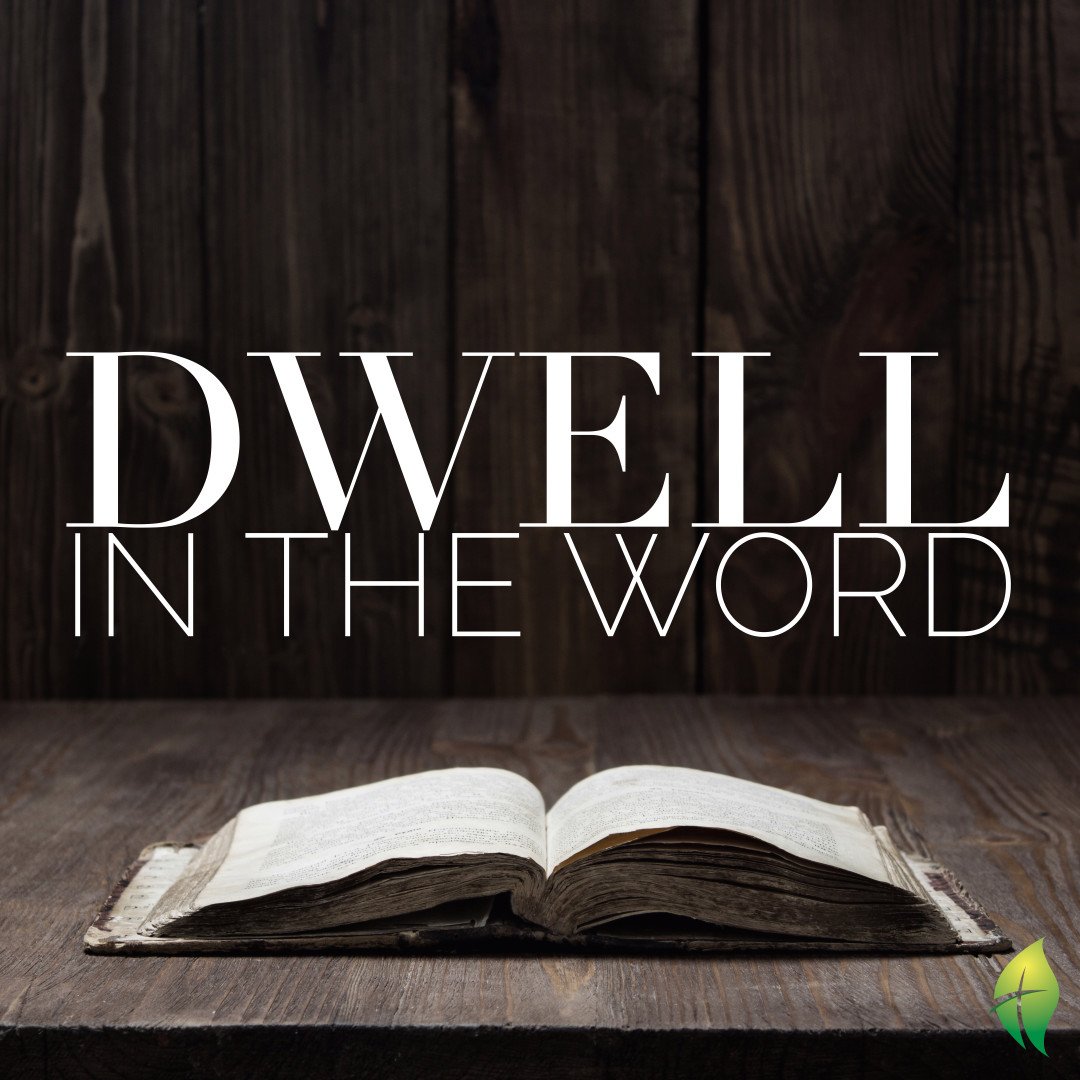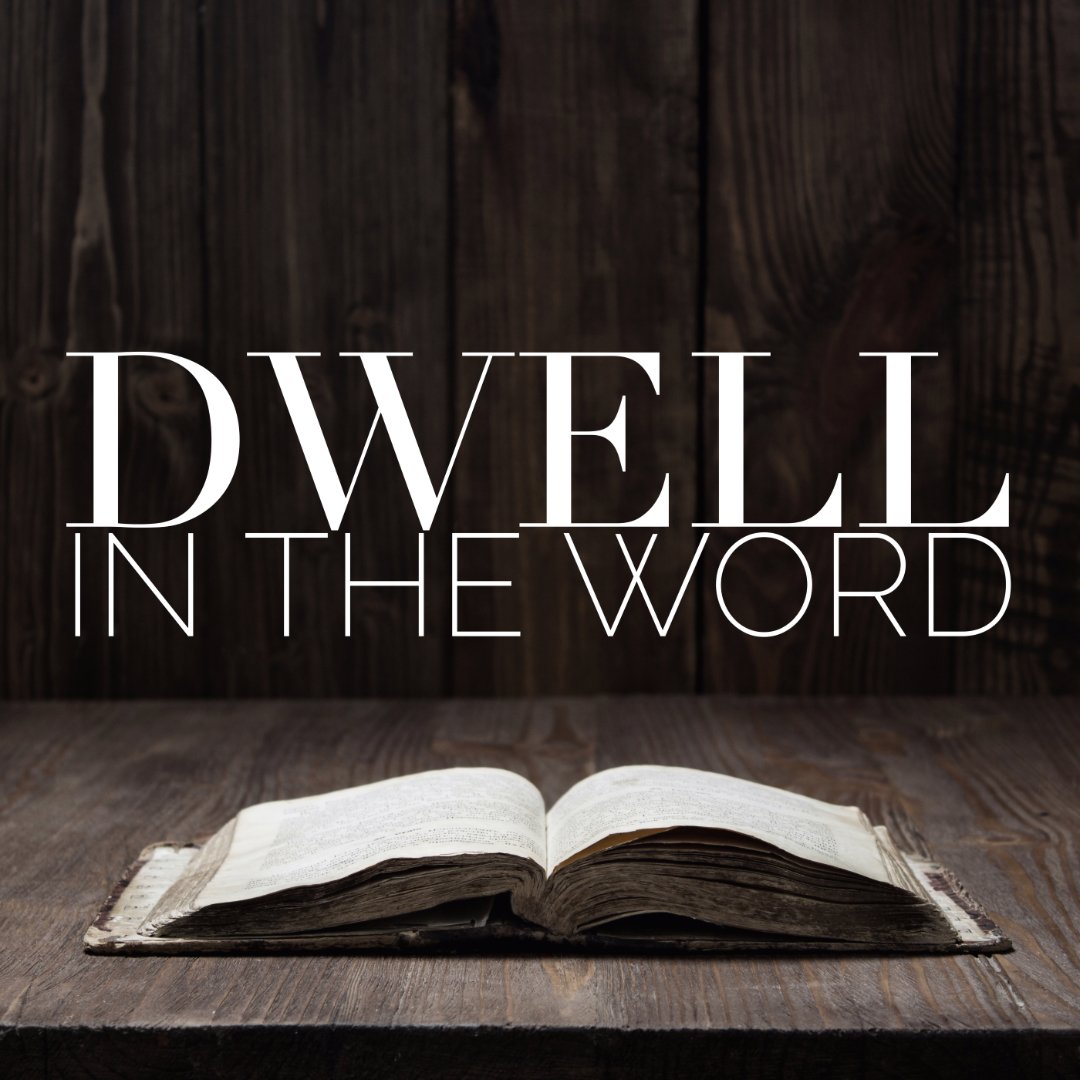
Marked By Grace: Day 11
Faith in the Midst of the Storm
Scripture: Mark 4:35-41
Reflection:
In this passage, Jesus and His disciples encounter a fierce storm while crossing the Sea of Galilee. The terrified disciples wake Jesus, who calms the storm with His command. This event powerfully illustrates Jesus’ authority over nature and challenges us to reflect on our faith and trust in Him during life's storms. The disciples’ fear and Jesus' question, “Why are you so afraid? Have you still no faith?” prompts us to consider how we respond to crises and difficulties. Are we overwhelmed by fear, or do we trust Jesus' power and presence?

Marked By Grace: Day 10
The Kingdom of God Revealed in Parables
Scripture: Mark 4:21-34
Reflection:
This section of Mark contains several parables, each revealing aspects of the Kingdom of God. The parable of the lamp under a basket teaches that the truth of the Gospel is meant to be revealed and shared, not hidden. The parable of the growing seed illustrates the mysterious, inherent power of God’s word to grow and bear fruit. The parable of the mustard seed emphasizes the Kingdom of God's humble beginnings and expansive, transformative growth. These teachings invite us to consider our role in sharing and nurturing the Gospel and trust in God's Kingdom's surprising and powerful growth.

Marked By Grace: Day 9
The Parable of the Sower
Scripture: Mark 4:1-20
Reflection:
In this passage, Jesus tells the parable of the sower, a powerful illustration of how different people receive the word of God in different ways. The varied responses to the Gospel are likened to seeds falling on different soil types. This parable challenges us to examine the condition of our hearts: Are we like the path, rocky ground, thorns, or good soil? It's a call to self-examination regarding our receptivity to God's word and a reminder of the importance of cultivating a heart that is open and responsive to the Gospel.

Marked By Grace: Day 8
True Kinship and the Unforgivable Sin
Scripture:Mark 3:22-35
Reflection:
In this passage, Jesus addresses the accusation from the scribes that He casts out demons by the power of Beelzebul. His response illustrates the illogical nature of their claim and warns of the grave danger of attributing God's work to Satan, known as the unforgivable sin against the Holy Spirit. The passage concludes with Jesus redefining kinship, not by blood ties, but by obedience to God's will. This teaching invites us to reflect on our understanding of spiritual family and our commitment to doing God's will as the true mark of belonging to Christ's family.

Marked By Grace: Day 7
The Calling of the Twelve and the Challenge of Misunderstanding
Scripture Reading:Mark 3:13-21
Reflection:
In this passage, Jesus calls the twelve apostles, selecting them from among His followers for a special role in His ministry. This calling highlights the importance of being chosen by Jesus for specific tasks and the intimacy of learning directly from Him. The apostles are appointed to preach and have authority to cast out demons, indicating the spiritual nature of their mission. The latter part of the passage shows the misunderstanding Jesus faced, even from His own family, emphasizing the often challenging path of following Christ, which can involve being misunderstood or opposed by those close to us.

Marked By Grace: Day 6
Authority and Compassion Amidst Controversy
Scripture Reading:Mark 3:1-12
Reflection:
In Mark 3:1-12, Jesus heals a man with a withered hand on the Sabbath, directly challenging the Pharisees’ rigid interpretation of the law. This healing demonstrates Jesus' authority over religious conventions and His prioritization of compassion over legalistic adherence. The Pharisees’ reaction, plotting against Jesus, highlights the conflict between Jesus’ message and the established religious order. Additionally, the passage shows Jesus’ power over unclean spirits, affirming His divine authority, while He instructs them to remain silent about His identity, reflecting His desire to reveal His messiahship on His terms.

The Revelation of Jesus Christ: Revelation 1:1-3 | 5 Devotions on the Hope and Victory of Revelation
The Book of Revelation is not meant to confuse, but to unveil. These five devotional readings accompany our sermon, “The Revelation of Jesus Christ” (Revelation 1:1–3), and are designed to help you reflect more deeply on its central themes: the unveiling of Christ, the call to faithfulness, and the enduring hope of God’s promises. Each day’s reading includes a short reflection, Scripture passage, and questions to stir your heart and strengthen your walk with Christ.

Marked By Grace: Day 5
New Wine in New Wineskins
Scripture: Mark 2:18-28
Reflection:
This passage highlights two significant teachings of Jesus. First, His response to the question about fasting reveals the incompatibility of His new message with old religious customs. Jesus compares His coming to the arrival of a bridegroom, a time for joy, not mourning or fasting. The new wine of His Kingdom requires new wineskins, indicating a radical shift from traditional religious practices. Second, Jesus’ teaching about the Sabbath emphasizes the priority of human need and mercy over legalistic observance. He asserts His authority over the Sabbath, emphasizing its purpose to serve humanity, not to enslave it.

Marked By Grace: Day 4
Forgiveness and Fellowship
Scripture Reading: Mark 2:1-17
Reflection:
In this passage, Jesus heals a paralytic, first addressing the man’s sins, then his physical ailment, emphasizing the primacy of spiritual healing. The scribes question Jesus’ authority to forgive sins, but He demonstrates His divine authority through physical healing. This incident reveals the depth of Jesus’ compassion and His power to forgive and heal holistically. The calling of Levi, a tax collector, further illustrates Jesus’ mission to reach the marginalized and sinners, challenging social norms and religious prejudices.

Mark By Grace: Day 3
Solitude, Service, and Spreading the Good News
Scripture Reading: Mark 1:35-45
Reflection:
This passage begins with Jesus seeking solitude in a desolate place for prayer, showing the importance of personal communion with the Father. Yet, when people seek Him, He responds to their needs, emphasizing His mission to preach and heal. The healing of the leper not only displays Jesus' compassion and His power to cleanse and restore. Unable to keep silent about his healing, this man spreads the news, illustrating how personal encounters with Christ compel us to share the good news with others.

Marked By Grace: Day 2
Authority and Compassion in Action
Scripture Reading: Mark 1:21-34
Reflection:
In this passage, Jesus' teaching is marked by authority, distinguishing Him from the scribes. His authority is further demonstrated by casting out an unclean spirit and the healing of many, including Peter's mother-in-law. These acts of power are not just displays of authority but also compassion and care for those suffering. This section of Scripture invites us to reflect on the authority of Jesus' teachings in our lives and His compassionate response to our needs and sufferings.

Marked By Grace: Day 1
The Beginning of the Gospel
Scripture Reading: Mark 1:1-20
Reflection:
Mark 1:1-20 sets the stage for the public ministry of Jesus Christ. It starts with John the Baptist's preparatory work, emphasizing repentance and baptism. Then, Jesus' baptism and temptation in the wilderness signify His readiness for ministry. Jesus' proclamation, "The time is fulfilled, and the kingdom of God is at hand; repent and believe in the gospel," is a powerful call to action. The calling of the first disciples shows the immediate and total response that Jesus' call demands. This passage invites us to reflect on our own response to the Gospel and Jesus' lordship in our lives.

Secure in the Storm | Psalm 11 | Dwell in the Word
Psalm 11 opens not with despair but with confidence: “In the Lord I take refuge.” In this Dwell in the Word episode, Pastor Mark Groen walks through this short yet profound psalm to help us see what it means to trust God when the world feels like it’s falling apart. Whether we’re tempted to run or freeze in fear, this devotional reminds us that God is still enthroned—and He sees.

Peace in the Night | Psalm 4 | Dwell in the Word
Psalm 4 ends with these words: “In peace I will both lie down and sleep, for you alone, O Lord, make me dwell in safety.” In this episode of Dwell in the Word, Pastor Mark Groen unpacks this deep trust David has in God’s care, even when distress and danger surround him.

Dwell in the Word: 45:14-25
Well, we see throughout the Book of Isaiah that it is that God has spoken to the people of Israel. God has revealed Himself to them, and He has caused them to hear. He is doing this, and so they know who He is. Later on, down in this passage, after this acknowledgment of this God who did all this creating work, the God who made everything. Remember, as we've been seeing, as we've been through the Ten Commandments, there's this important idea between the gods of the nations and the God of Israel. The God of Israel is other. He is separate from the creation. He is not like the creation. There is a creator creation distinction, important to understand. They don't have this with the pagan gods that they go running after. And here we see that the real difference is that God speaks and He causes His people to listen. We see this in verse 19. I did not speak in secret in a land of darkness. I did not say to the offspring of Jacob, 'Seek me in vain. ' He didn't say, Hey, come find me if you can. God spoke with a purpose to His people.

Life Together in the Spirit | Acts 2:42–47 | Dwell in the Word
In this final episode on Acts chapter 2, Pastor Mark Groen walks through the closing verses of Peter’s Pentecost sermon and the Spirit-formed life of the early church. Acts 2:42–47 paints a picture of a community shaped by the Word, devoted to worship, fellowship, and generosity. This passage calls us to trust in the power of the Holy Spirit through ordinary means—preaching, prayer, breaking bread, and life together. As Pastor Mark emphasizes, gospel growth doesn't depend on clever methods, but on God's faithful work through His Word.

From Death to Life | Acts 2:22–41 | Dwell in the Word
In this extended Dwell in the Word reflection on Acts 2:22–41, Pastor Mark Groen unpacks the conclusion of Peter’s Pentecost sermon. He emphasizes that Jesus’ death was no accident but part of God’s definite plan, foretold in Scripture and fulfilled in history. This episode explores Peter’s use of Psalm 110, the call to repentance and baptism, and the remarkable promise that salvation is for all whom God calls—near and far, young and old. A powerful reminder that the gospel is for every generation.

Call Upon the Lord | Acts 2:14–21 | Dwell in the Word
In this Dwell in the Word episode, Pastor Mark Groen continues through Acts 2 with verses 14–21—the beginning of Peter’s sermon at Pentecost. Quoting from the prophet Joel, Peter explains that the coming of the Holy Spirit marks a new era of redemptive history where the gospel is for all people. No matter your background, age, gender, or status, the call to salvation is the same: Call on the name of the Lord and you will be saved. This passage is a powerful reminder of God’s mercy and the mission of the church to proclaim the gospel everywhere.

Tongues, Wind, and Witness | Acts 2:1–13 | Dwell in the Word
This Dwell in the Word episode focuses on Acts 2:1–13 and the remarkable outpouring of the Holy Spirit at Pentecost. Pastor Mark explains how the Spirit’s coming brought clarity and life—not confusion—and how the gospel was proclaimed in every language for the salvation of many. The episode highlights how this moment fulfills Old Testament prophecy, reverses the judgment at Babel, and reveals God’s intent to build a people from every tribe and tongue. This is the story of how the church begins—and why it continues.

Witness to the Ends of the Earth | Acts 1:1–11 | Dwell in the Word
And so, the book of Acts starts out with an introduction and then quickly moves into the ascension and this Introduction is an interesting one. We've seen on Sunday morning. We have been looking at the book Luke and we saw in Luke chapter 1, Luke started out talking about how he was writing to this Theophilus.
And so, this book of Acts is a continuation of the story that Luke has told in the Gospel of Luke. And so, what we see here is that he's looking to tell a story beyond what happened. Notice that he's talking about Jesus and what he did until he was taken up. But now he's going to be talking about something else.
